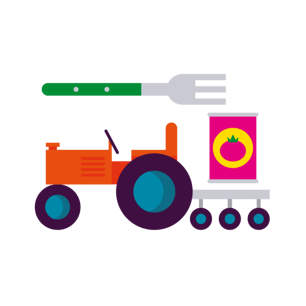Navigating the 2026 food landscape - four key issues
The food and agri sector is enormously diverse and important. Katrina Anderson and Jessica Burt identify for key issues for the year ahead.
Log in to your client extranet for free matter information, know-how and documents.
Mills & Reeve system for employees.

The food and agri sector is enormously diverse and important. Katrina Anderson and Jessica Burt identify for key issues for the year ahead.
The Autumn Budget 2025 introduces a mix of measures that will reshape the food and agribusiness landscape. We provide a breakdown of these plans and discuss the impact on the sector.
The Competition and Markets Authority (CMA) has launched its’ first investigation using its new powers under the Digital Markets, Competition & Consumer Act (DMCC), into online pricing practices.
Katrina Anderson, Principle Associate specialising in commercial and food product regulatory at Mills & Reeve, looked at the implications for access to healthy, affordable food, and what might be next for HFSS (high in fat, salt, and sugar) food.
Food producer businesses may be inadvertently impacted by EPR rules if their brand is placed on packaging – even if the food is produced on behalf of an own brander.
Jessica Burt, associate specialising in food product regulatory and product liability at Mills & Reeve, looks at the implications of future mandatory sales data reporting for ‘larger’ food companies and what this may mean in the food sector as a whole.
The Advertising Standards Authority (ASA) gave a ruling on Shell Energy UK for a paid for LinkedIn ad, dated 1 October. This provides a useful insight into how to get green claims right and the ASA's view on LinkedIn content.
Monday 29 September marks the UN’s sixth International Day of Awareness of Food Loss and Waste. This year’s theme calls for the expansion and strengthening of stakeholder efforts to reduce food loss and waste as a critical element of securing a sustainable food future.
Discover the UK government's new approach to HFSS regulation, shifting from rigid promotional restrictions to mandatory data reporting and health targets for retailers, and learn how these changes affect compliance and retail strategies.
Daniel Zeichner, MP for Cambridge and Minister of State for Defra, joined key UK food and farming leaders at a private Mills & Reeve roundtable dinner to discuss food security, gene editing, sustainability, and government strategy. In this blog, we explore some of the key takeaways from the event.
The UK government has postponed the implementation of new TV and online advertising restrictions for Less Healthy Foods (LHF) from 1 October 2025 to 5 January 2026.
In this blog we look at the ASA ruling against ZOE Ltd for a Facebook ad promoting its “Daily30+” supplement.